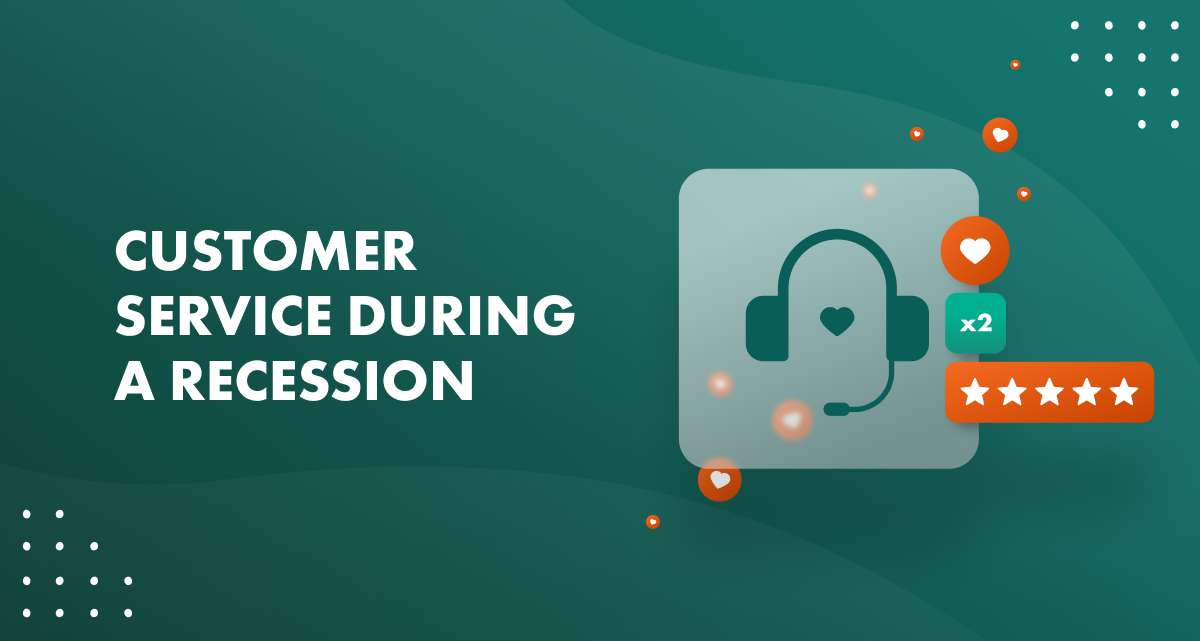Inflation, high energy costs, and rising interest rates all point to financial instability in the market.
Global economies are experiencing the combined effect of the pandemic, the war in Ukraine and supply chain shortages, while companies across different industries are evaluating hiring freezes and cost-cutting measures.
So, is it all doom and gloom for businesses?
No! In fact – far from it.
Customer expectations remain strong
Despite changes in the economy, customer expectations with regards to customer service and experience remain strong.
And they don’t look like they’re going to change anytime soon!
According to State of the Connected Customer 2022, customers expect more from businesses than ever before.
88% of customers say the experience a company provides is as important as its product or services – up from 80% in 2020.
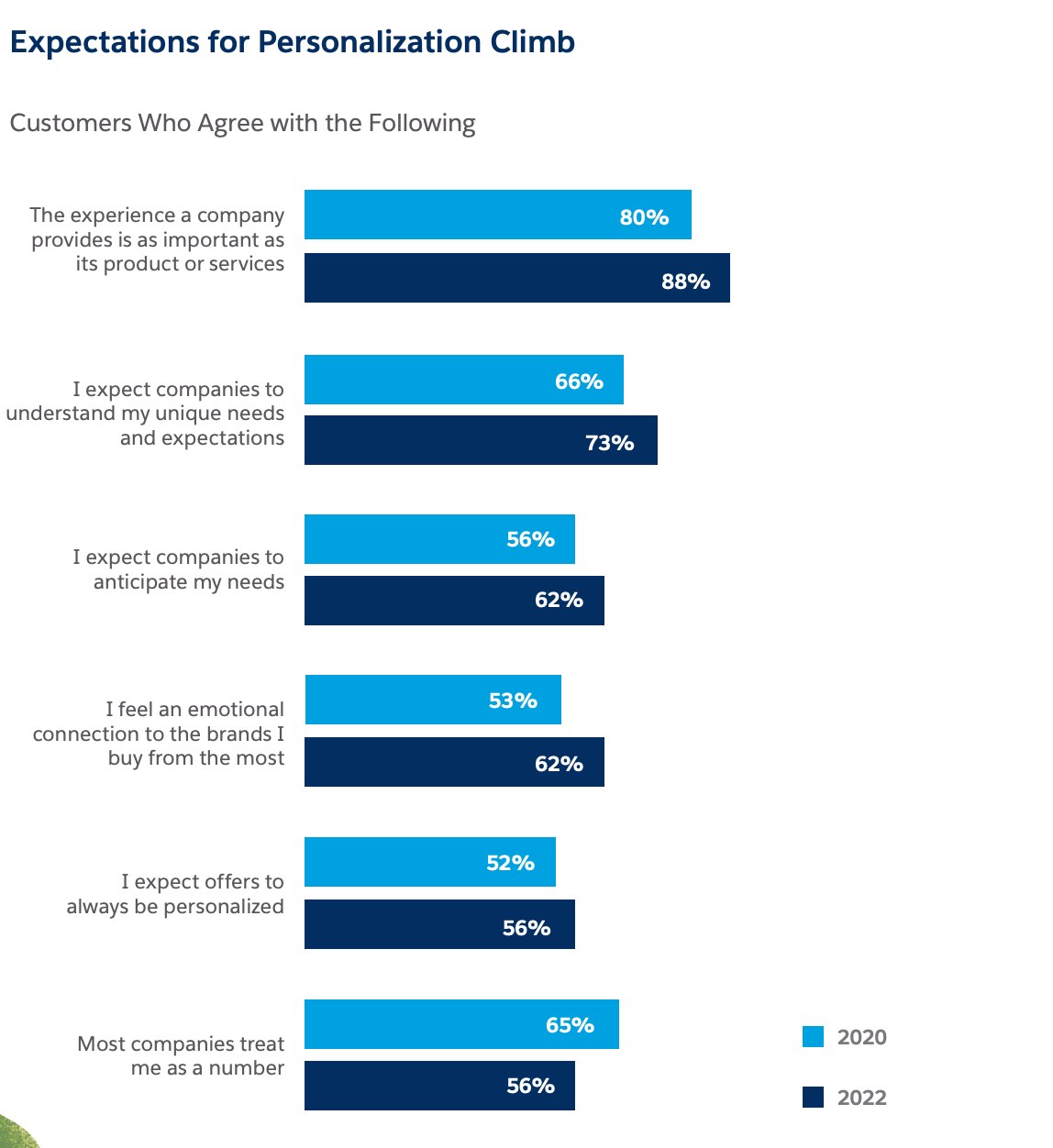
The research also shows that customers prefer companies who provide proactive help and anticipate their needs before anything becomes an issue, such as contract renewals.
Surprisingly, age makes a difference too.
In 2021, customer service expert Shep Hyken surveyed 1000 consumers to help companies better understand their customers’ preferences, habits, and wants.
Here’s what he found:
Knowledgeable, kind, and helpful employees are more important to Boomers, while Millennials find delivery, empathy, and a personalized experience to be more important.
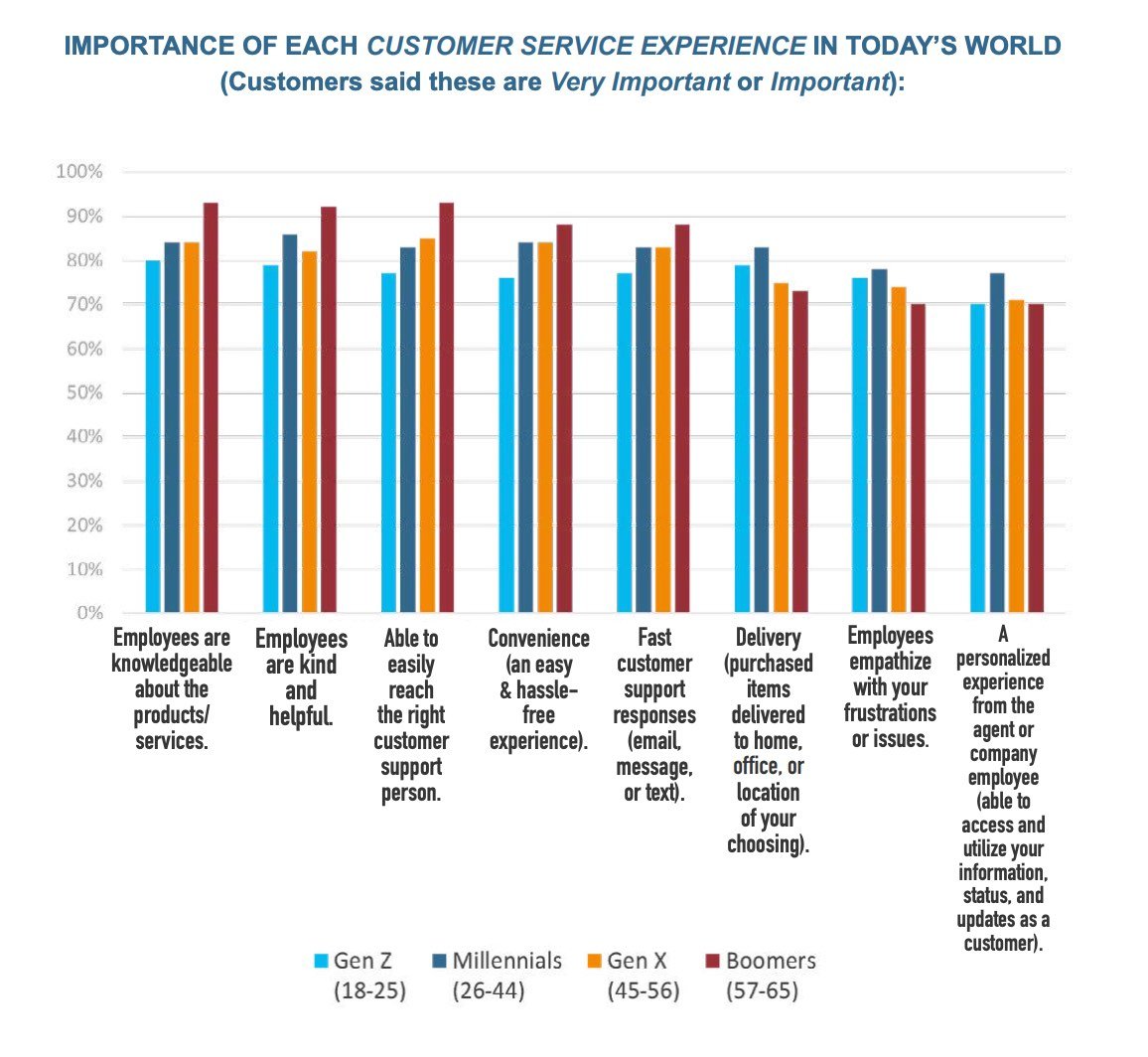
Personalization is not just a “nice to have” anymore.
Customers demand it:
- 71% of customers feel frustrated when their experience is impersonal.
- 72% of customers say they only engage with personalized messages.
- 63% of customers will stop buying from brands that use poor personalization strategies.
Our take? Recession or not, good customer experience drives purchasing habits and revenue.
5 reasons to amp up your customer service in a recession
As we head into a possible recession, many companies are faced with the same challenges: cut costs and weather the storm, or find new ways to drive sales and growth – one of which is doubling down on customer service when times are tough.
While it may seem counterintuitive to invest in customer service during a recession, there are several compelling reasons why B2B companies should do just that.
1. Customer retention is key
Let’s face it – you don’t want to lose your customers to a competitor!
It costs 5 times as much to acquire a new customer than to retain an existing one.
But if you can keep your existing customers happy, a 5% increase in customer retention can impact 95% of your profits.
And during a recession, customers are more likely to cut costs by canceling contracts or switching to cheaper alternatives. 🤷
To combat this trend, focus on building strong relationships by providing excellent customer service. This can include things like regularly checking in with customers, handling their issues promptly, and offering self-service options so customers can get their questions answered 24x7.
Simple actions like this will help you increase customer loyalty and satisfaction, making it less likely that customers stop doing business with you.
2. Improve your brand reputation
When it comes to customer service, some may only think of problems and complaints. However, there is more to it.
Good customer service can leave customers with a positive experience and help them spread the word about your business through referrals!
On the other hand, dealing poorly with issues or inquiries could be costly – not just financially, but also in terms of reputation, as unhappy customers are likely to share their negative experiences everywhere they go.
On average, an unhappy customer will share their story with up to 15 people.
Worse still – if a customer is really unhappy, 1 in 10 people will tell 20 or more others about what happened.
That’s a huge problem!
Especially when 95% of consumers consult online reviews before making a purchase.
During hard times, it’s more important than ever to put the needs of the customer first.
Show customers that you still care by providing a consistent customer service experience across all channels.
This includes maintaining high response times and ensuring customers receive the same level of quality regardless of whether they contact the company by phone, email, or social media.
3. Increase sales and CLV
Another benefit of good customer service during a recession is that it can help drive sales and growth.
Companies with superior customer experience bring in 5.7 times more revenue than competitors that lag in customer experience.
Additionally, research from the Temkin Group found that companies with strong customer service are more likely to see an increase in revenue than those that don't.
So, what can you do?
You can increase customer lifetime value (CLV) by upselling and cross-selling. Offer complementary products that will help enhance your customers’ infrastructure or upsell them from a basic product or service to a more advanced one.
Even in a recession, good customer service can attract new customers! 🙌
Your prospects are looking for new ways to save money, so they may also be more open to trying out new products or services.
Companies that prioritize customer service can leverage this opportunity by promoting the value they provide through excellent service.
Gartner’s research director, Brad Fazer says:
“Adding value in customer service interactions can lead to new revenue streams while also protecting existing ones. As a result, strategies that focus on enhancing value are prevalent and growing.”
4. Differentiate yourself from competitors
Your competitors are thinking the same thing you are thinking: “Should we save costs by cutting down on customer service levels?”.
The answer is NO! 🙅
Research shows that 83% of customers expect to interact immediately when they contact a company. And 78% have used multiple channels to start and complete a transaction.
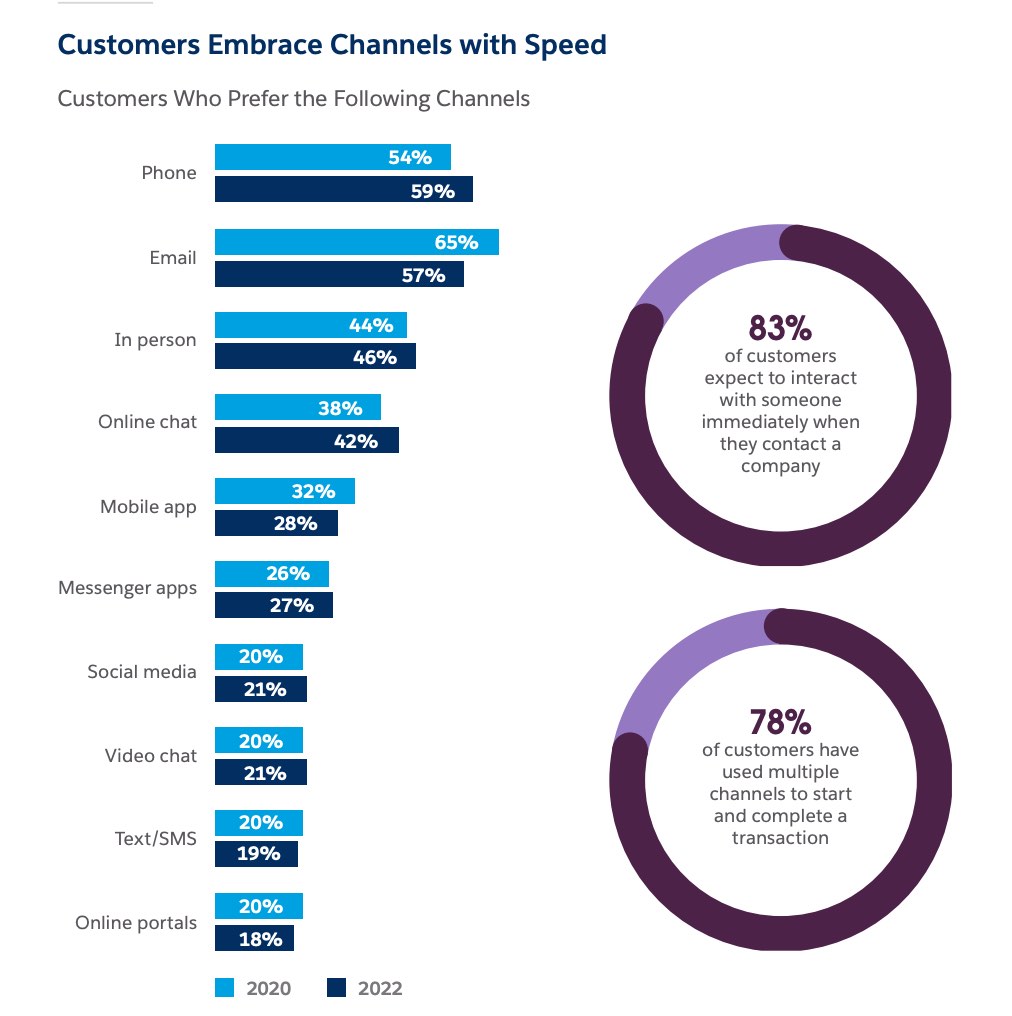
In a “digital first” world, companies must make smart investments into automation.
By investing in the right technology, you can free up resources to take on more complex issues, all the while improving your organizational efficiency and cutting costs.
Use automation to handle incoming requests without investing in more tools, training, or staff.
Build robust knowledge bases and forums, so that customers can help themselves.
So, while your competitors are wondering how to make do with what they have, you can leave them behind by using technology to improve productivity and efficiency within your customer service department.
5. Build trust with customers
Trust declines during times of turmoil.
In a 2022 study, Forrester found that trust among B2B buyers and consumers follows changes in the economy, where trust is more difficult to retain during bad times and rises during the good.
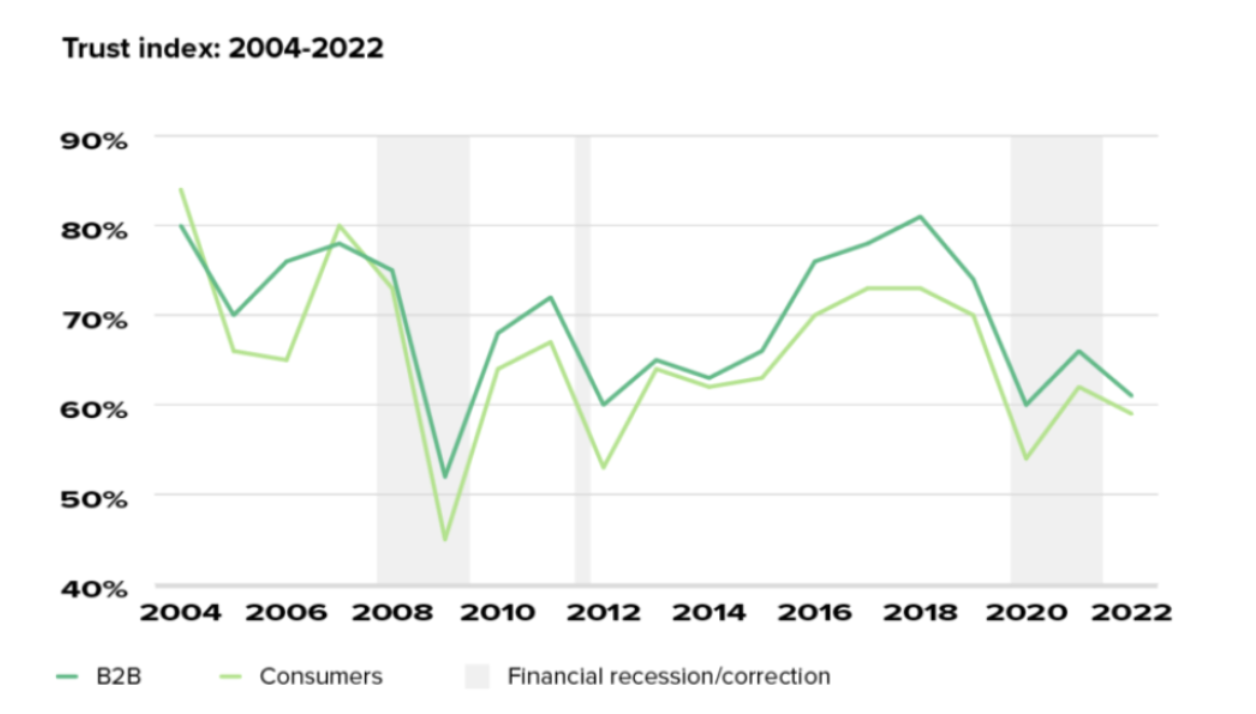
There’s a trust gap between buyers and businesses.
In Forrester’s 2021 Brand And Communications Survey, 85% of respondents thought they were better than average at following through on their commitments. But buyers (surprise, surprise!) didn’t feel the same way.
It’s good customer service can help you build that trust.
As all companies are worried about the recession, your company can build trust and show empathy by sharing helpful content on social media platforms, email newsletters and on your corporate blog.
Share collaborative interviews with customers – along with practical ways for working smart and staying sane.
And when you do it without being salesy, you’re not only expressing empathy, but also reinforcing trust between your customers and you. 🤗
Even when times are tough, we can’t forget that we are all human.
We are, after all, in the relationships business.
Conclusion
Yes, we’re heading for some challenging times.
But remember this 👉 change can be an exciting opportunity that allows you to explore new tactics and strategies for the future!
So, instead of fighting against what is, use it as an opportunity to thrive.
Even in tough economic times, customers continue to demand high levels of customer service.
And it’s up to businesses to meet those demands – whether that’s personalization, speedy response, or proactive help.
By doing so, you’ll be better equipped to keep existing customers and win new ones, differentiate yourself from competitors, and build trust – all of which can lead to increased sales.
SuperOffice has lived through two economic recessions 😮. So, we’re truly experienced in helping companies weather the storm and come out stronger on the other side.
Want to learn more about how SuperOffice can help your company implement similar strategies? Contact us today!
